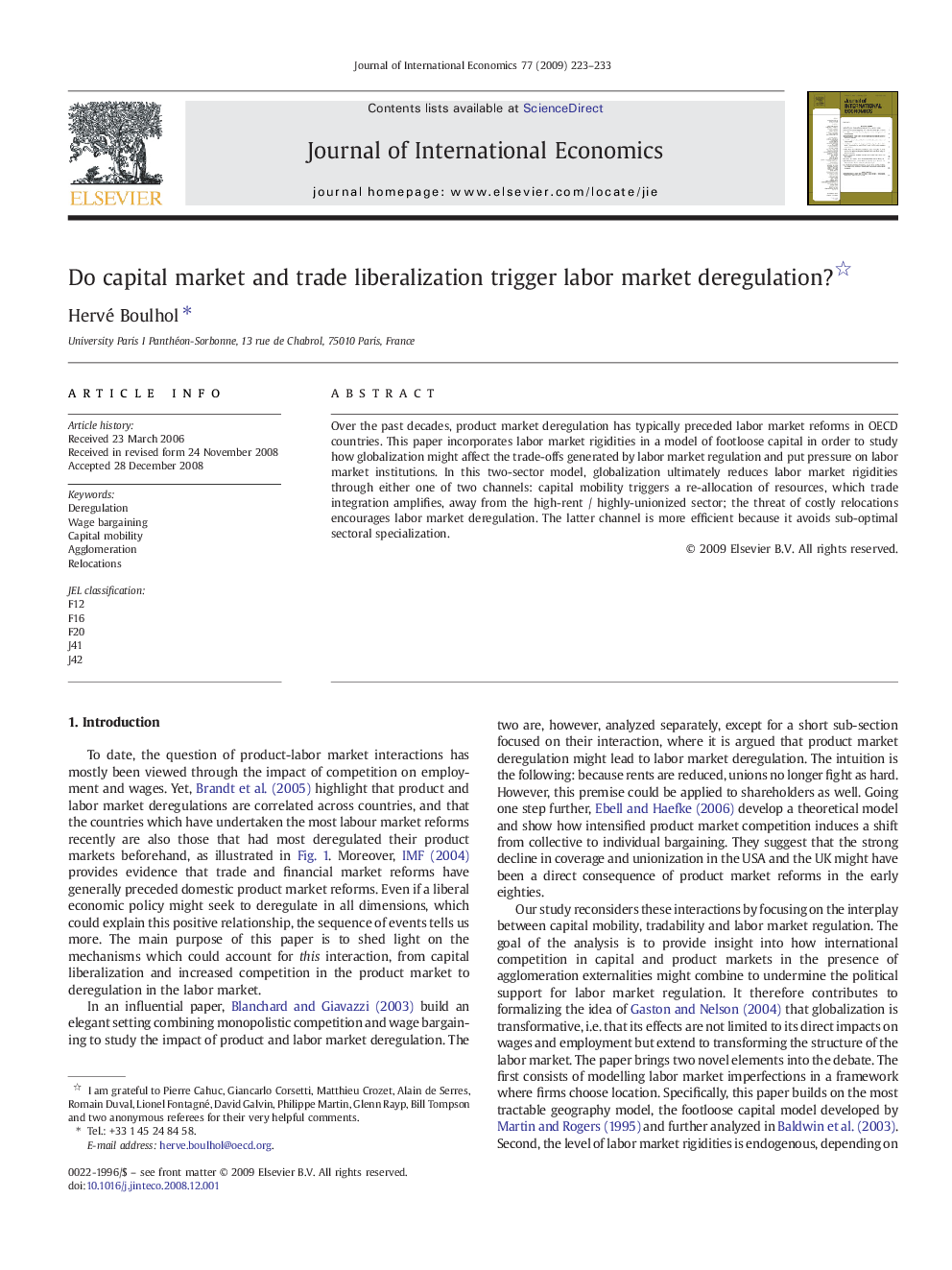| Article ID | Journal | Published Year | Pages | File Type |
|---|---|---|---|---|
| 962457 | Journal of International Economics | 2009 | 11 Pages |
Abstract
Over the past decades, product market deregulation has typically preceded labor market reforms in OECD countries. This paper incorporates labor market rigidities in a model of footloose capital in order to study how globalization might affect the trade-offs generated by labor market regulation and put pressure on labor market institutions. In this two-sector model, globalization ultimately reduces labor market rigidities through either one of two channels: capital mobility triggers a re-allocation of resources, which trade integration amplifies, away from the high-rent / highly-unionized sector; the threat of costly relocations encourages labor market deregulation. The latter channel is more efficient because it avoids sub-optimal sectoral specialization.
Related Topics
Social Sciences and Humanities
Economics, Econometrics and Finance
Economics and Econometrics
Authors
Hervé Boulhol,
